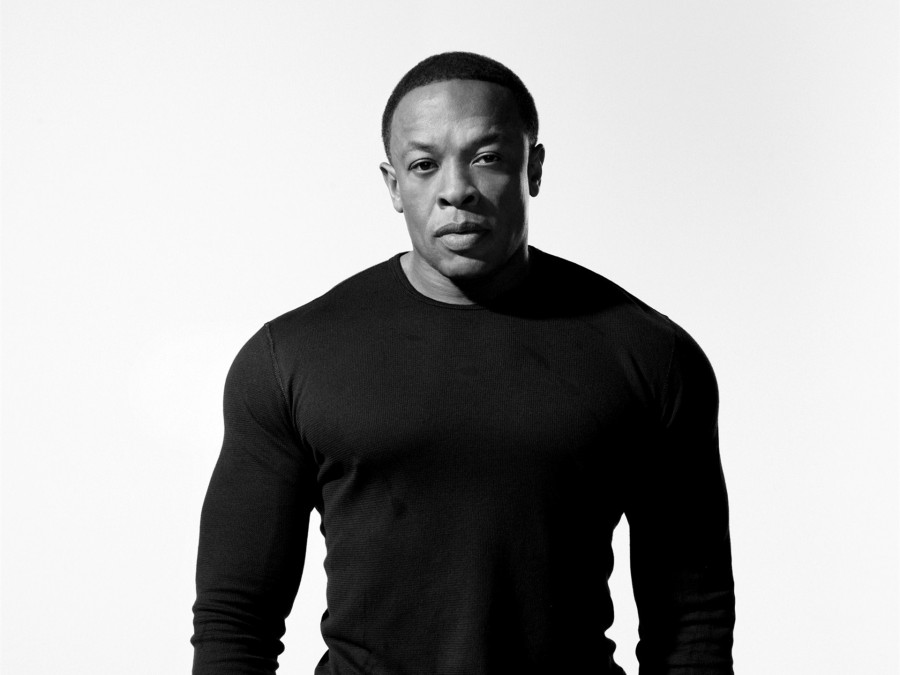Compton Conquers the Summer
The 16 year music hiatus for Compton-based rapper Dr. Dre is finally over as he released his full-length LP, Compton: A Soundtrack by Dr. Dre.
Dr. Dre is considered as one of the greatest hip-hop producers of all-time, and his two solo albums, The Chronic and 2001, are regarded as classic rap albums.
The former N.W.A. artist is known for his deep, hard-hitting voice, and adding some G-funk to his gangsta raps, but he takes a different path on his newest project. The album is reminiscent to Jay-Z’s Blueprint 3 because they’ve become grown men, they talk a lot less about gang violence and don’t brag about their thuggish ways nearly as much. They also just use R&B hooks to try and add some mainstream appeal to the songs.
It’s hard to blame Dr. Dre. It’s difficult to rap about drive-bys, chrome 24-inch rims and gang related issues when you’re a 50 year old family man who rocks dad jeans.
The only differences between Compton and The Blueprint 3 is that Compton features better production, fast-paced rapping, but also less hit singles. But enough with the Dre and Jay comparisons, let us introduce you to a day in Compton, California:
The album starts off with an audio from CBS News discussing about how the city of Compton turned from the African-American dream to one of the most dangerous places in America. The dark, murky ending of the intro transitioned into “Talk About It,” where the song starts out with a hard-hitting beat and King Mez going ballistic from the get-go. Dr. Dre holds his own on the braggadocios record, claiming “I was getting money ‘fore the internet, still got Eminem checks I ain’t open yet.”
In “It’s All On Me,” features a more nostalgic Dr. Dre, looking back on the trials and tribulations of his music career alongside some spectacular vocals provided by BJ the Chicago Kid.
He raps about how he came from borrowing Eazy-E’s car to becoming a world famous rapper spitting rhymes alongside Snoop Dogg. He also shares his hardships working with the violent Suge Knight.
On the latter half of the album, we see a Dr. Dre we’ve never really seen before, one who talks about social issues on tracks such as “Satisfiction,” and “Animal.”
The track “Satisfiction” is about how the lavish lifestyle that people believe some famous celebrities live isn’t real, as Dre raps “My life is all authentic, that’s why I’m going way up. Your satisfaction is fictitious, your happiness is made up.”
On “Animals,” Dr. Dre and R&B singer Anderson Paak discuss about the recent riots against police brutality, talking about how the media depicts the black rioters as animals. Paak’s vocals and the production from DJ Premiere makes for one of the better tracks off the album.
Dr. Dre leaves his best for last on the outro track, “Talking to My Diary.” The beat seems like something that could’ve been blasting from Dre’s low rider back in 1999. Mr. Andre Young reminisces about how he came from the ghetto to buying his mother everything her heart desired and reflects on his career with N.W.A. It’s a great way to end an illustrious musical career from Dr. Dre.
It’s truly remarkable how Dr. Dre is able to get any rapper, well-known or underground, and get the absolute best from them; some of Kendrick Lamar’s verses seemed like they could’ve easily come from his last album. But one of the faults of the album is the expensive, sometimes overdone hooks.
The R&B choruses themselves are usually good (except for the one on “Medicine Man”), but they appear on so many tracks that it can get played out. The best choruses are those on the tracks “Deep Water” and “Talking to My Diary” because they are so simplistic. Dre’s biggest hits always had simplistic hooks that were performed by rappers, such as “Nuthin’ But a ‘G’ Thang” and “Still D.R.E.”
One of the other drawbacks is that Dre isn’t going off on tracks with the deep voice and eloquent flow like he did in the 90’s. And he doesn’t use his signature synthesizers like he did on The Chronic or the bombastic drums from 2001.
Still, Dr. Dre has been able to conquer the summer by releasing a strong, cohesive album at the age of 50 that are better than a lot of the albums being released by younger artists. With Compton, Dre shows that he’s still “a producer who can rap and control the maestro” with one of the hottest albums of the year. Rating: 8.4/10

AHS senior Hezekiel Yonas has been on The A-Blast staff for three years. When he isn't focusing on the responsibilities that come along with being co-editor...




